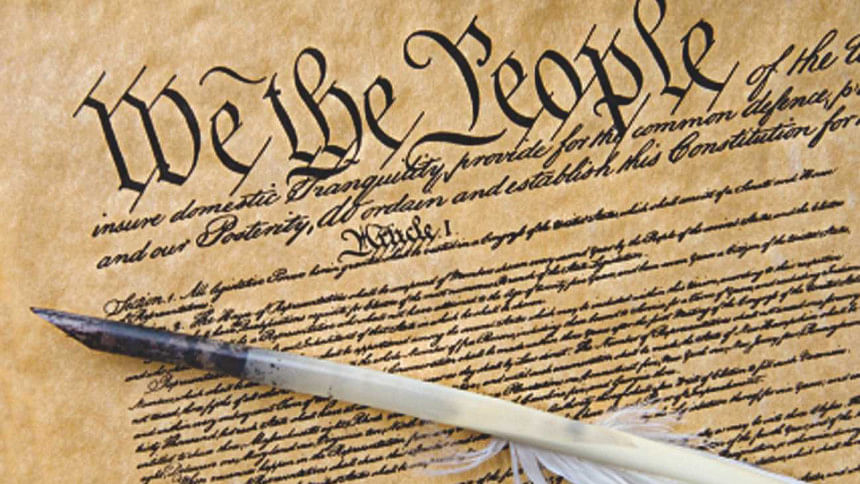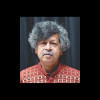Relax, America is not falling apart. Not yet.

Two days ago, I received an earnest query from a friend in Dhaka. He was concerned that the US was showing some signs of becoming dysfunctional. Could it be that the Empire itself may soon become a failed State?
Let me assure my friend and others worried about the health of the United States that the news of its demise is highly exaggerated. Let me explain why.
I don't dispute that it is showing signs of some internal cracks and crevices. This is nothing new, the US – now 234 years old - has gone through periodic cataclysms: a civil war that left it torn, assassinations of its top leaders that hit hard at its core values, a foreign invasion that took nearly 60,000 lives. As a result, the country was bruised and battered, but it always recovered, each time coming back stronger.
Just think of the past 20 years. In 2000, the Year of the Hanging Chad, the US had gone through an election that was decided by 576 votes in Florida and a partisan Supreme Court, and in the process left the country hobbled by fierce opposition between the two camps. Within a few months, the country got embroiled in a war that left deep wounds which remain unhealed to this day. A few years later, a little-known Senator from Illinois swept the elections using his opposition to the war, but it also gave rise to the so-called Tea Party Movement that swore to fight the first black President to its last breath. The country's racial divide took a seat front and centre, its ugly face completely bare. And now, eight years later, a supremely divisive man - alternately described as a "con man" and an "ignoramus" - sits in the White House and the whole world thinks the end of the great Empire is near.
Relax, a bout of indigestion may ruin your day but chances are you will recover soon.
As arguably the world's oldest democracy, the foundation of American democracy is too deep and its institutions too solid to be fatally shaken by occasional tremors. Just look at the way American democracy is correcting itself from Donald Tramp's lethal attack. In the White House, we now have a person who considers the presidency to be an extension of his business empire, and as CEO, he is entitled to do whatever he wants to do with it. So he began issuing a bunch of executive orders, including one that banned Muslims from seven countries to travel to the US. He did so completely disregarding its legality and without taking into account its real-life consequences. Just like that, with a single stroke of his pen, he sent the country into a tizzy. But before it hit rock bottom, the falling empire was rescued from within. First the government's own Attorney-General, albeit an acting one, publicly expressed her disagreement with the president and refused to defend his action. She was soon fired, but her views were echoed by a judge in Washington who declared the Muslim ban unconstitutional and overruled the president. It obviously peeved the president, but there was nothing he could do. His mighty pen was now worthless. The only recourse left to him was the legal one. He grudgingly ordered his staff to seek a reversal through the intervention of a higher court.
This is exactly how democracy is supposed to work, with checks and balances that act as road blocks, slowing down a wrecking bull and ultimately stopping it. Democracy is not just elections and peaceful transfer of power, but also institutions that serve as its own bulwark. Judiciary is one such institution, but there are others, including civil society and the media. I have deliberately left legislature out of the list. In today's America, with both houses of its
Congress under the control of a compliant conservative political party and the opposition party still recovering from last November's shellacking, the legislature is at its weakest.
The civil society has stepped in to fill the void. From day one of his presidency, Donald Trump has faced non-stop opposition from the public. Led by grassroot organisations and powered mostly by social media, nearly half a million people – mostly women – took part in a historic march in Washington D.C. on January 21 that questioned the legitimacy of Trump and his professed policies. A 32-year old Bangladeshi woman, whose picture with an American flag worn as a hijab, defiantly challenged the linear narrative that Trump had proposed for his mostly white supporters. Gathered within shouting distance from his White House, the mass of humanity declared that Trump may have won the elections, but the country was still theirs.
That was only the beginning. The next week, as Donald issued his Muslim Ban, the country's airports were taken over by chanting demonstrators who called his executive order "un-American". Joining ordinary citizens in this spontaneous outpouring of popular protest were celebrities from Hollywood, billionaires from Silicon Valley and intellectuals from the country's best known educational institutions. Suddenly, a new battle line was drawn: it was people versus power. Within 48 hours, the order was halted by a Federal Court, leaving Donald fuming but helpless.
Clearly, the real clog in the wheel has been the media, especially social media. With a compliant ruling party and a disoriented opposition, the media has emerged as the open platform to monitor Trump and his White House bullies, many of whom are known for espousing White Supremacist beliefs. Major newspapers, most TV networks, and upstart media voices in the margins all now closely scrutinise Trump's every move. They have unearthed the role of dark money behind Trump's victory machine, dissected his shadowy links with Putin's Russia and unmasked his conflict of interest as chief executive of the State and CEO of a vast business empire. They bared the Wall Street links of his cabinet nominees and the potential for them to cause irreparable damage to the Republic. It was no surprise that Steve Bannon, Trump's 'Rasputin' in D.C., called the media "the opposition party."
These are nothing but self-correcting tools that a deep rooted democracy puts in place. However, the tools on their own are no guarantee that democracy will endure, it needs an engaged and vigilant public that would judiciously use these tools. The last few weeks have demonstrated that the American people are up to the task. The bull in the china shop has not been fully restrained, but it knows people are watching its every move.
In short, the health of the republic is just fine.
The writer is a journalist and author based in New York.

 For all latest news, follow The Daily Star's Google News channel.
For all latest news, follow The Daily Star's Google News channel. 



Comments